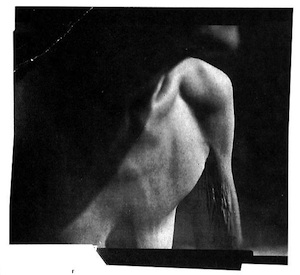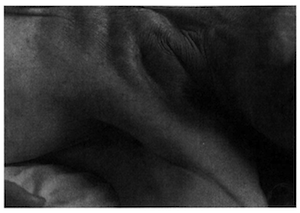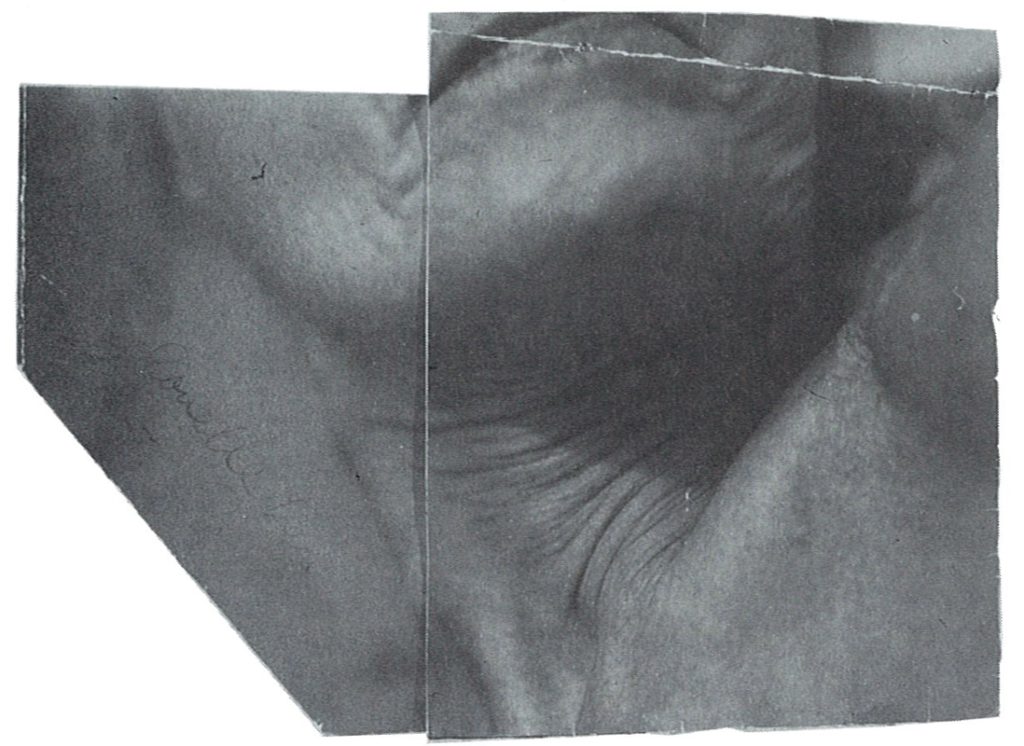Even the Buddha himself, with his great store of accumulated virtue, could not avoid death. When he reached old age, he relinquished his body and let go of its heavy burden. Now you too must learn to be satisfied with the many years you have already depended on your body. You should feel that it’s enough.
You can compare it to household utensils that you’ve had for a long time—your cups, saucers, plates, and so on. When you first had them they were clean and shining, but now after using them for so long, they’re starting to wear out. Some are already broken, some have disappeared, and those left are deteriorating: they have no stable form, and it’s their nature to be like that. Your body is the same way. It has been continually changing right from the day you were born, through childhood and youth, until now it has reached old age. You must accept that. The Buddha said that all conditions (sankharas), whether they are internal conditions, bodily conditions, or external conditions, are not-self—their nature is to change. Contemplate this truth until you see it clearly.
This very lump of flesh that lies here in decline is a saccadhamma, the truth. The truth of this body is saccadhamma, and it is the unchanging teaching of the Buddha. The Buddha taught us to look at the body, to contemplate it and to come to terms with its nature. We must be able to be at peace with the body, whatever state it is in. The Buddha taught that we should ensure that it is only the body that is locked up in jail, and not let the mind be imprisoned along with it. Now as your body begins to run down and deteriorate with age, don’t resist that, but don’t let your mind deteriorate with it. Keep the mind separate. Give energy to the mind by realizing the truth of the way things are. The Lord Buddha taught that this is the nature of the body. It can’t be any other way. Having been born, it gets old and sick and then it dies. This is a great truth that you are presently encountering. Look at the body with wisdom and realize it.
You needn’t worry about anything because this isn’t your real home. It’s just a temporary shelter. Everything there is, is preparing to disappear. If you look at it like that, your heart will be at ease.
You have been alive a long time. Your eyes have seen any number of forms and colors, your ears have heard so many sounds, and you’ve had any number of experiences. And that’s all they were—just experiences. You’ve eaten delicious foods and all the good tastes were just good tastes, nothing more. The unpleasant tastes were just unpleasant tastes, that’s all. If the eye sees a beautiful form, that’s all it is, just a beautiful form. An ugly form is just an ugly form. The ear hears an entrancing, melodious sound, and it’s nothing more than that. A grating, disharmonious sound is simply so.
The Buddha said that rich or poor, young or old, human or animal, no being in this world can maintain itself in any one state for long; every thing experiences changes and estrangement. This is a fact of life that we can do nothing to remedy. But the Buddha said that what we can do is contemplate the body and mind so as to see their impersonality, see that neither of them is “me” or “mine.” They have a merely provisional reality. It’s like this house: it’s only nominally yours, you couldn’t take it with you anywhere.
It is the same with your wealth, your possessions, and your family—they are all yours only in name; they don’t really belong to you, they belong to nature. Now this truth doesn’t apply to you alone; everyone is in the same position, even the Lord Buddha and his enlightened disciples. They differed from us in only one respect, and that was in their acceptance of the way things are. They saw it could be no other way.

The Buddha taught us to scan and examine this body, from the soles of the feet up to the crown of the head, then back down to the feet again. Just take a look at the body. What sort of things do you see? Is there anything intrinsically clean there? Can you find any abiding essence? This whole body is steadily degenerating, and the Buddha taught us to see that it doesn’t belong to us. It is natural for the body to be this way because all conditioned phenomena are subject to change. How else would you have it be? Actually there’s nothing wrong with the way the body is. It’s not the body that causes suffering, it’s your wrong thinking. When you see the right wrongly, there’s bound to be confusion.
The more exhausted you feel, the more subtle and focused your concentration must be, so that you can cope with the painful sensations that arise. When you start to feel fatigued, then bring all your thinking to a halt, let the mind gather itself together, and then turn to knowing the breath. Just keep up the inner recitation: Bud-dho, Bud-dho. Let go of all externals. Don’t go grasping at thoughts of your children and relatives, don’t grasp at anything whatsoever. Let go. Let the mind unite in a single point and let that composed mind dwell with the breath. Let the breath be its sole object of knowledge. Concentrate until the mind becomes increasingly subtle, until feelings are insignificant, and there is great inner clarity and wakefulness. Then when painful sensations arise, they will gradually cease of their own accord.
In truth, there’s no self anywhere to be found. There are only things continually arising and passing away, as is their nature. This is the way things are, yet everyone wants them to be permanent. This is foolishness.
So let go, put everything down—everything except knowing. Don’t be fooled if visions or sounds arise in your mind during meditation. Put them all down. Don’t take hold of anything at all. Just stay with this non-dual awareness. Don’t worry about the past or the future. Just be still and you will reach the place where there is no advancing, no retreating, no stopping, where there is nothing to grasp at or cling to. Why? Because there’s no self, no “me” or “mine.” It’s all gone.
The Buddha taught us to be emptied of everything in this way, not to carry anything with us. To know, and having known, let go.
Realizing the Dhamma, the path to freedom from the Round of Birth and Death, is a task that we all have to do alone. So keep trying to let go and to understand the teachings. Really put effort into your contemplation. Don’t worry about your family. At the moment they are as they are; in the future they will be like you. There’s no one in the world who can escape this fate. The Buddha told us to put down everything that lacks a real abiding substance. If you put everything down, you will see the truth. If you don’t, you won’t. That’s the way it is and it’s the same for everyone in the world. So don’t worry and don’t grasp at anything.
This is your own work, nobody else’s. Your sole responsibility right now is to focus on your mind and bring it to peace. Leave everything else to others. Forms, sounds, odors, tastes—leave them to others to attend to. Put everything behind you and do your own work, fulfill your own responsibility. Whatever arises in your mind—be it fear of pain, fear of death, anxiety about others or whatever—say to it, “Don’t disturb me. You’re not my business anymore.” Just keep saying this to yourself when you see those Dhammas arise.
Thinking that you’d like to go on living for a long time will make you suffer. But thinking you’d like to die right away or die very quickly isn’t right either. Conditions don’t belong to us, they follow their own natural laws. You can’t do anything about the way the body is. You can prettify it a little, make it look attractive and clean for a while, like the young girls who paint their lips and let their nails grow long, but when old age arrives, everyone’s in the same boat. That’s the way the body is, you can’t make it any other way. But what you can improve and beautify is the mind.
As soon as we’re born, we’re dead. Our birth and our death are just one thing. It’s like a tree: when there’s a root, there must be twigs. Where there are twigs, there must be a root. You can’t have one without the other. It’s a little funny to see how at a death people are so grief-stricken and distracted, fearful and sad, and at a birth how happy and delighted. I think if you really want to cry, then it would be better to do so when someone’s born. For actually birth is death, death is birth, the root is the twig, the twig is the root. If you’ve got to cry, cry at the root, cry at the birth. Look closely: if there were no birth, there would be no death. Can you understand this?
Related: Birth and Death

You needn’t worry about anything because this isn’t your real home, it’s just a temporary shelter. Having come into this world, you should contemplate its nature. Everything there is, is preparing to disappear. Look at your body. Is there anything there that’s still in its original form? Is your skin as it used to be? Is your hair? It’s not the same, is it? Where has everything gone? This is nature, the way things are. When their time is up, conditions go their way. This world is nothing to rely on—it’s an endless round of disturbance and trouble, pleasure and pain. There’s no peace.
One who is nursing parents should fill his or her mind with kindness, not get caught in aversion. This is the one time when you can repay the debt that you owe them. From your birth through your childhood, as you’ve grown up, you’ve been dependent on your parents. That we are here today is because our mothers and fathers have helped us in so many ways. We owe them an incredible debt of gratitude.
So today, all of you children and relatives gathered here together, see how your parents become your children. Before you were their children, now they become yours. They become older and older until they become children again. Their memories go, their eyes don’t see so well, and their ears don’t hear. Sometimes they garble their words. Don’t let it upset you. All of you nursing the sick must know how to let go.
Let the patient remember the kindness of those who nurse and patiently endure the painful feelings. Exert yourself mentally, don’t let the mind become scattered and agitated, and don’t make things difficult for those looking after you. Let those who nurse the sick fill their minds with virtue and kindness. Don’t be averse to the unattractive side of the job, to cleaning up mucus and phlegm, or urine and excrement. Try your best. Everyone in the family, give a hand.
These are the only parents you’ve got. They gave you life; they have been your teachers, your nurses, your doctors; they’ve been everything to you. That they have brought you up, taught you, shared their wealth with you and made you their heirs is the great beneficence of parents. Consequently the Buddha taught the virtues of katannu and katavedi, knowing our debt of gratitude and trying to repay it. These two Dhammas are complementary. If our parents are in need, they’re unwell or in difficulty, then we do our best to help them. This is katannukatavedi; it is a virtue that sustains the world. It prevents families from breaking up; it makes them stable and harmonious.
Anyone can build a house of wood and bricks, but the Buddha taught that that is not our real home. Our real home is inner peace.
Thank you for subscribing to Tricycle! As a nonprofit, we depend on readers like you to keep Buddhist teachings and practices widely available.
